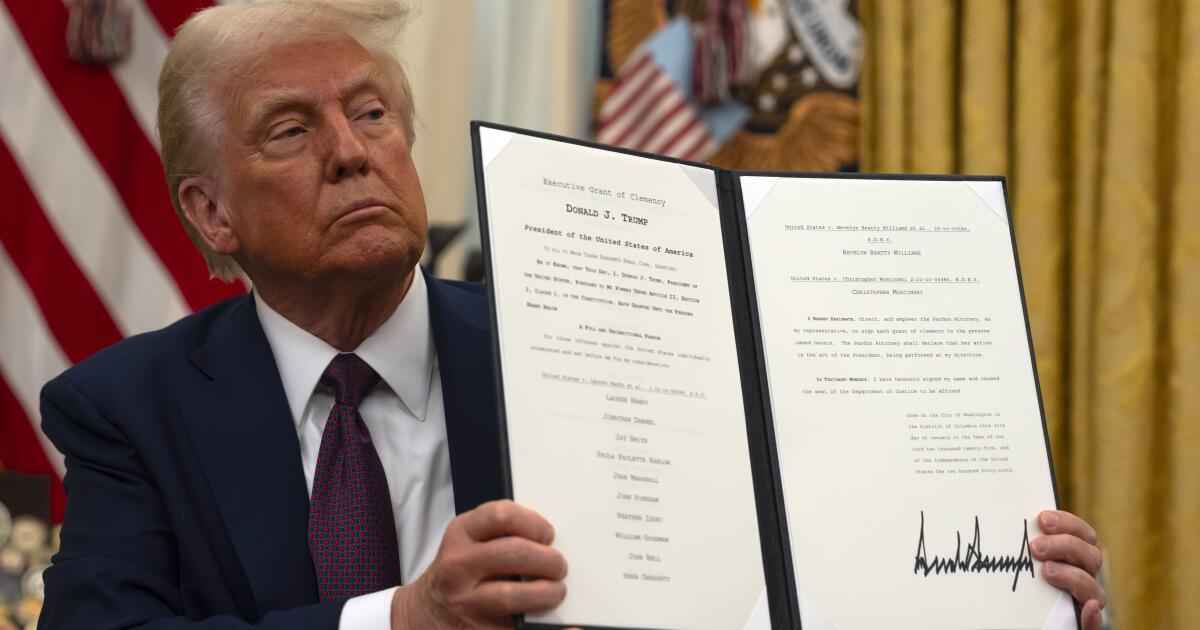CHICAGO — During Donald Trump’s campaign for president last year, he sought to ease the concerns of voters alarmed that the Supreme Court he helped shape during his first term had overturned the constitutional right to abortion, saying that he did not oppose abortion but thought the issue should be decided by individual states.
More than six months into Trump’s second term in the White House, a review by the Associated Press shows that several of his nominees to the federal courts have revealed antiabortion views, been associated with antiabortion groups or defended abortion restrictions.
Several have helped defend their state’s abortion restrictions in court, and some have been involved in cases with national impact, including on access to medication abortion.
The nominees, with lifetime appointments, would be in position to roll back abortion rights long after Trump leaves the White House.
Trump’s shifting positions
Trump has repeatedly shifted his messaging on abortion, often giving contradictory or vague answers.
In the years before the 2024 campaign, Trump had voiced support for a federal ban on abortion on or after 20 weeks in pregnancy and said he might support a national ban around 15 weeks. He later settled on messaging that decisions about abortion access should be left to the states.
Throughout his campaign, Trump has alternated between taking credit for appointing the Supreme Court justices who helped overturn Roe vs. Wade and striking a more neutral tone. That’s been an effort to navigate the political divide between his base of antiabortion supporters and the broader public, which largely supports access to abortion.
Nominees’ views
One Trump nominee called abortion a “barbaric practice,” while another referred to himself as a “zealot” for the antiabortion movement. A nominee from Tennessee said abortion deserves special scrutiny because “this is the only medical procedure that terminates a life.”
One from Missouri spread misinformation about medication abortion, including that it “starves the baby to death in the womb” in a lawsuit aiming to challenge the Food and Drug Administration’s approval of the abortion pill mifepristone.
Legal experts and abortion rights advocates warn of a methodical remaking of the federal courts in a way that could pose enduring threats to abortion access nationwide.
Bernadette Meyler, a professor of constitutional law at Stanford University, said judicial appointments “are a way of federally shaping the abortion question without going through Congress or making a big, explicit statement.”
“It’s a way to cover up a little bit what is happening in the abortion sphere compared to legislation or executive orders that may be more visible, dramatic and spark more backlash,” she said.
White House’s position
Harrison Fields, a White House spokesperson, said that “every nominee of the President represents his promises to the American people and aligns with the U.S. Supreme Court’s landmark ruling.”
“The Democrats’ extreme position on abortion was rejected in November in favor of President Trump’s commonsense approach, which allows states to decide, supports the sanctity of human life, and prevents taxpayer funding of abortion,” Fields said in a statement to the AP.
Trump focused primarily on the economy and immigration during his 2024 campaign, the issues that surveys showed were the most important topics for voters.
Views across the abortion divide
Antiabortion advocates say it’s premature to determine whether the nominees will support their objectives, but they’re hopeful based on the names put forth so far.
“We look forward to four more years of nominees cut from that mold,” said Katie Glenn Daniel, director of legal affairs for the national antiabortion organization SBA Pro-Life America.
Abortion-rights advocates said Trump is embedding abortion opponents into the judiciary one judge at a time.
“This just feeds into this larger strategy where Trump has gotten away with distancing himself from abortion, saying he’s going to leave it to the states, while simultaneously appointing antiabortion extremists at all levels of government,” said Mini Timmaraju, president of the national abortion rights organization Reproductive Freedom for All, formerly known as NARAL Pro-Choice America,
Fernando writes for the Associated Press.
